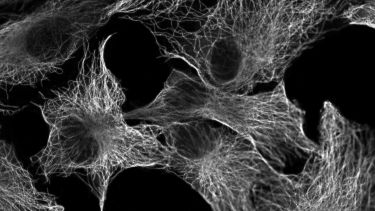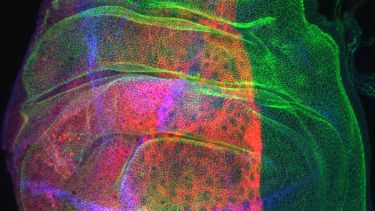The LMF is a multi-user microscopy facility, which houses state-of-the-art microscopes, which are available to researchers across the University. It is used, in particular, by researchers in the Faculty of Science and the Faculty of Medicine, Dentistry and Health, and is fundamental to much of the work being undertaken by the University’s flagship research Institutes. As well as providing access to the equipment itself, the LMF also delivers training to researchers at all levels, from PhD students to Principal Investigators, in microscopy and image analysis.
In addition to increasing the provision of microscopy available to researchers within and outside the University, this new grant will allow an expansion of the existing LMF to enable further collaborations between physicists, biologists, chemists and engineers, to develop new technologies to view cells and tissues in unprecedented detail.
Physicists are often able to develop technologies faster than commercial companies, however it can the take longer to get these new technologies into the hands of biological researchers owing to their different approaches and the needs of their research. By collocating researchers from across disciplines, the LMF is able to drive collaboration, allowing physicists to work more closely with biologists to develop new equipment and techniques, delivering custom technology specifically to answer the biological questions being asked at the University.
The expansion of the LMF opens up an exciting range of possibilities to an already successful imaging facility. The new space will foster collaboration between system developers and end-users, which will drive the development of cutting edge technologies and novel biology. Users and students will be able to see how microscopes work from the inside giving them a broader appreciation of microscopy and a deeper understanding of how their images are formed.”
Dr Darren Robinson
Light Microscopy Facility Manager
Microscopy is integral to understanding the interactions within individual cells, between cells within tissues, between tissues within organisms, and hence how animals and plants function. Being able to see key events in biological interactions in greater detail is essential to understanding function and answering questions, but often leads to the formulation of new scientific queries.
The LMF directly underpins research in the University of ∫˘¬´”∞“µ Flagship Institutes for Neuroscience, Healthy Lifespan and Sustainable Food, as well as Faculty of Science research priority areas of Life in a Changing Environment, Lifespan Biology and Infectious Disease and Antimicrobial Resistance. This new grant and expansion of the LMF will empower the University‚Äôs outstanding researchers to provide answers to questions that will have a significant impact on people‚Äôs everyday lives.
The LMF was first established in 2006, thanks to funding from the University of ∫˘¬´”∞“µ and the Wellcome Trust. In 2013, a grant from the facilitated the co-location of the existing equipment and staff in one site to more effectively provide imaging support for researchers across the University. This latest grant will allow for expansion into a new space next to the existing LMF, increasing the workspace available for the existing 145 users, and allowing for more researchers across the University to benefit from the services and technology the LMF provides.



